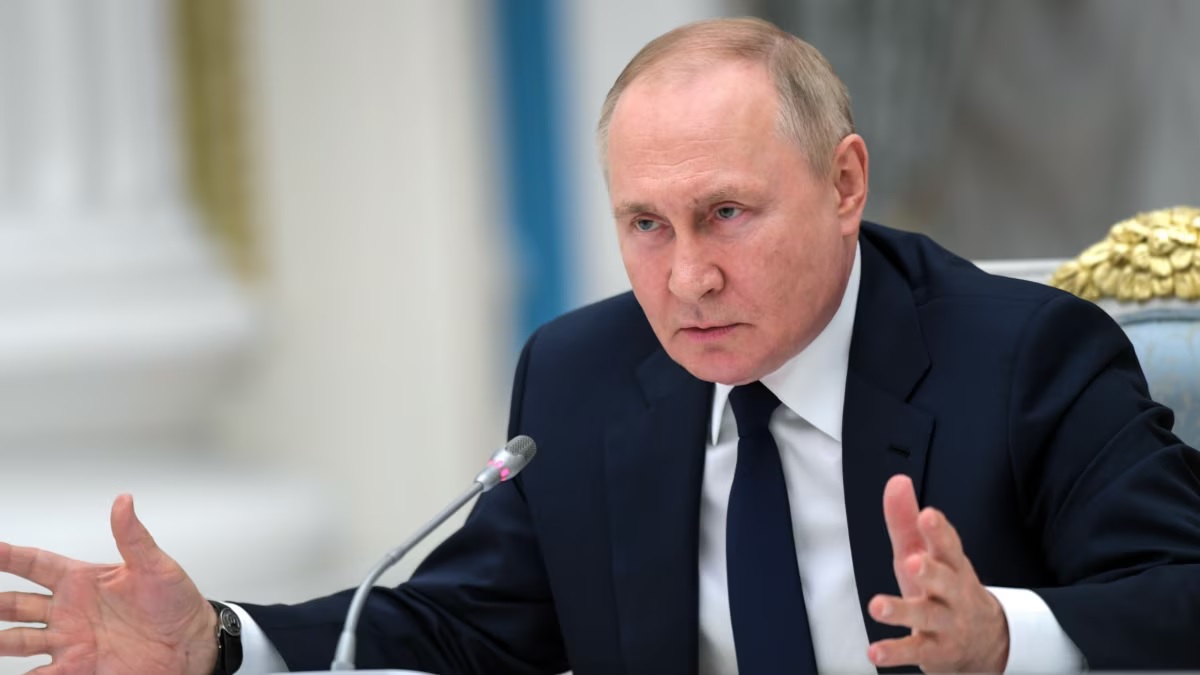US and UK Stall on Missile Decision as Putin Warns of NATO-Russia Conflict Over Ukraine

Amid growing tensions between Russia and the West, a recent warning from Russian President Vladimir Putin has sparked concern. On Thursday, Putin cautioned that if Ukraine is allowed to use Western-supplied long-range missiles against Russian targets, it could lead to a direct military conflict between Russia and NATO. “It is not just a question of allowing the Ukrainian regime to strike Russia,” Putin declared, emphasizing that it was about determining if NATO countries would directly engage in the ongoing war. His warning raised the stakes in an already volatile situation, hinting at serious retaliatory measures if the missile issue escalates, although he was vague about Russia's potential response.
At the heart of this warning lies Ukraine’s request for more powerful weapons from its Western allies, particularly long-range missiles. Western nations, especially the US and the UK, are central to Ukraine’s support in the war, but they are now facing a dilemma. UK Prime Minister Keir Starmer and US President Joe Biden recently held discussions in Washington where this very issue was addressed. However, both leaders ultimately decided to postpone a decision on whether to supply Ukraine with these advanced weapons.
One of the key points of contention is Ukraine’s request for British Storm Shadow missiles and US-made ATACMS (Army Tactical Missile Systems). These weapons could enable Ukraine to strike Russian targets deeper than before, potentially shifting the dynamics of the war. Starmer hinted that this subject was part of a broader strategic discussion between him and Biden, although he clarified that no specific decisions had been made. It appears that this critical choice may be delayed until further discussions at the upcoming UN General Assembly in New York.
Biden, for his part, downplayed Putin’s warning, stating bluntly, “I don’t think much about Vladimir Putin,” and expressed confidence that Russia would not succeed in the war. Despite this show of defiance, the Biden administration is reluctant to greenlight Ukraine’s request for ATACMS. American officials reportedly believe that these missiles would offer limited tactical advantages for Ukraine while potentially draining US stockpiles. This decision highlights the fine line the US is trying to walk—supporting Ukraine militarily without becoming too deeply entangled in the conflict with Russia.
Meanwhile, diplomatic tensions have also intensified. In retaliation for the potential supply of long-range weapons, Russia has taken steps to expel six British diplomats, accusing them of espionage. Moscow’s UN ambassador, Vassily Nebenzia, warned that supplying Ukraine with these weapons could lead to a direct confrontation with Russia, a nuclear power. Such rhetoric underscores the gravity of the situation, where any misstep could lead to an even broader and more devastating conflict.
As the missile issue simmers, the US and UK are also dealing with other global crises. Both countries have been involved in the ongoing conflict between Israel and Hamas in Gaza. Recently, Britain suspended arms deliveries to Israel, citing concerns over violations of international humanitarian law. In contrast, the US has maintained its unwavering support for Israel. During their meeting, Biden and Starmer affirmed their commitment to Israel while also stressing the urgent need for a ceasefire and better civilian protection in Gaza.
Back in Ukraine, President Volodymyr Zelensky continues to push for more robust military support from the West. He expressed frustration that the US and Europe seem hesitant to provide Ukraine with missile defense systems, despite their strong support for Israel. Zelensky plans to meet Biden later this month to present his plan for achieving "victory" against Russia.
This geopolitical drama unfolds against the backdrop of the looming US presidential election, which could significantly impact Washington’s future policies on Ukraine. With Biden nearing the end of his first term, the potential outcome of the election—whether it sees Biden reelected or a victory for figures like Kamala Harris or Donald Trump—may shape the direction of US involvement in the war. Trump, known for his favorable views on Putin, has expressed a desire to end the conflict without taking sides, potentially altering the nature of Western support for Ukraine.
As the West weighs its options, the stakes in Ukraine remain perilously high, and any decision on the use of Western-supplied long-range missiles will likely have far-reaching consequences, not only for the war but for global security.


